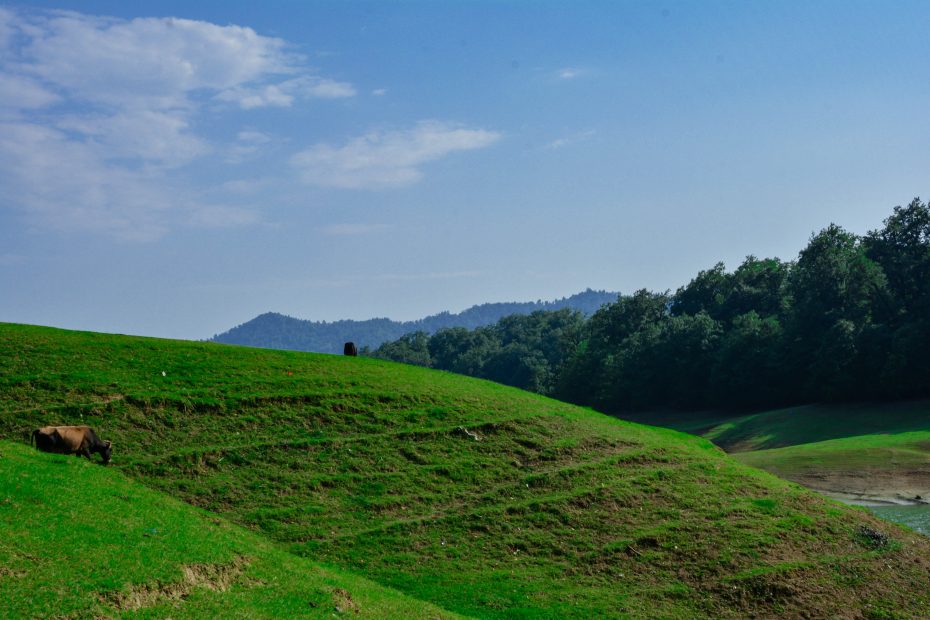Table of Contents
Introduction
Azerbaijan has a rich architectural history spanning thousands of years. From ancient defensive towers to intricate Islamic buildings to stunning modern structures, Azerbaijan’s architecture reflects the country’s diverse cultural influences. Let’s explore some of Azerbaijan’s most remarkable architectural sites from ancient times to the present day.
Ancient Architectural Wonders
Some of Azerbaijan’s most iconic buildings date back over a millennium and offer a window into the country’s ancient past.
Maiden Tower
The Maiden Tower in Baku is an ancient defensive structure whose origins date back to the 6th-7th century AD. This massive stone tower likely served as a fire beacon and defensive fortification. With its imposing yet elegant stonework, the Maiden Tower has come to symbolize the city of Baku.
Palace of the Shirvanshahs
Constructed in the 15th century, this palace complex showcases Azerbaijan’s medieval Islamic architecture. Intricate stone carvings and imposing arches decorate the palace, which was the royal residence of the Shirvanshahs dynasty.
Ancient city of Shamakhi
Shamakhi was one of the stops along the famous Silk Road and contains many archaeological sites and ruins dating back over 2,500 years. The ancient dwellings and structures offer insight into centuries past.
Medieval Architecture
Azerbaijan boasts exquisite medieval Islamic architectural gems.
Juma Mosque of Shamakhi
Built in the 8th century, this mosque is one of the oldest in Azerbaijan. Despite suffering damage from earthquakes, it remains a stunning example of classic Islamic architecture.
Momine Khatun Mausoleum
This tomb monument exemplifies Azerbaijani architecture in the era of the Seljuk Empire during the 12th-13th centuries. The intricate designs and brickwork make this mausoleum a masterpiece of its time.
Diri Baba Mausoleum
This 15th century mausoleum is set amidst stunning mountain scenery in Maraza village. Its octagonal structure capped with a beautiful dome is a prime example of Shirvan architecture.
Modern Architecture
In recent years, Azerbaijan has seen the rise of bold and futuristic architectural designs that have put Baku on the world’s architectural map.
Heydar Aliyev Center
Designed by renowned architect Zaha Hadid, this curvaceous concert hall and cultural center has become an iconic modern landmark in Baku since opening in 2012. Its flowing, sinusoidal design represents a fluid transition between past and future.
Flame Towers
These three towering skyscrapers resemble tongues of fire and provide stunning illumination displays at night. Representing Azerbaijan’s rich oil and gas resources, these buildings have become iconic modern additions to Baku’s skyline.
Baku Crystal Hall
Constructed in 2012, this contemporary structure hosted the Eurovision Song Contest thanks to its advanced broadcasting capabilities and eye-catching design. Its angular geometric shapes exemplify modern Azerbaijani architecture.
Unique Architectural Styles
Azerbaijan has cultivated distinctive architectural styles that synthesize various cultural and design influences.
Decorative Islamic influences
Many buildings incorporate classic Islamic elements like arches, geometric patterns and intricate ornamentation. This reflects the national Turkic-Islamic artistic identity.
Stunning contemporary designs
Azerbaijan has embraced futuristic architecture in recent years. Buildings like the Heydar Aliyev Center integrate smooth shapes, glass and steel for dramatic modern effects.
Architectural Sites Outside Baku
While Baku boasts many architectural gems, splendid buildings can also be found across Azerbaijan.
Gobustan Archaeological Reserve
This UNESCO site near Baku contains thousands of rock paintings and petroglyphs dating back over 10,000 years. This open-air museum offers a glimpse into Azerbaijan’s prehistoric past.
Ancient caves and petroglyphs
Azerbaijan contains hundreds of natural cave formations that sheltered ancient civilizations. Petroglyph images and primitive dwellings found in these caves provide archaeological insight.
Conclusion
From ancient towers and mausoleums to postmodern concert halls, Azerbaijan possesses a visually stunning range of architectural marvels. The country’s diverse history and cultural influences have given rise to unique structural designs that make Azerbaijan an architect’s paradise waiting to be explored. With increased investment in contemporary construction, we can expect many more architectural wonders to emerge in Azerbaijan’s exciting future.
FAQs
What is the most iconic ancient building in Azerbaijan?
The Maiden Tower in Baku, built between the 6th-7th centuries AD, is Azerbaijan’s most iconic and recognized ancient structure. This historic tower is the heart of Baku’s Old City and its image is featured on Azerbaijan’s currency and passports.
When did Islamic architecture emerge in Azerbaijan?
Islamic architecture first developed in Azerbaijan after the Islamic conquest of the region in the 7th century AD. Some of the earliest Islamic buildings are found in Shamakhi, including the 8th century Juma Mosque, one of the oldest mosques in Azerbaijan.
Who designed the Heydar Aliyev Center?
This landmark postmodern building that put Baku’s architecture on the map was designed by the late Zaha Hadid, an Iraqi-British architect recognized for her radical deconstructivist designs. The center opened in 2012.
What modern structures hosted the Eurovision Song Contest?
The 2012 Eurovision Song Contest was held in the Baku Crystal Hall, a contemporary building specially constructed on the shore of Baku Bay to host the event.
Where can ancient petroglyphs be seen in Azerbaijan?
Some of the best places to see ancient rock art and petroglyphs are the Gobustan Archaeological Reserve near Baku and the caves on the Gobustan Nature Reserve’s territory, which contain thousands of images dating back around 10,000-20,000 years ago.
